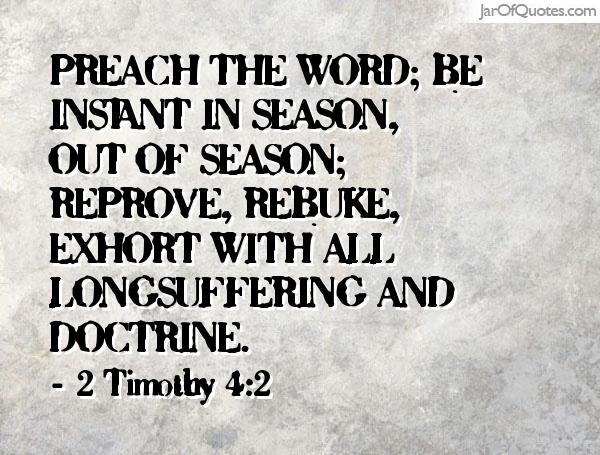Generations of Jonathan Edwards’ grandchildren became senators, preachers, and college presidents, according to an oft-cited study contrasting his family line with that of Max Jukes. While some have questioned particular aspects of the study, I find in it at least one interesting correlation—the choices of grandparents upon their descendants should typically impact future generations, for good or bad.
My recent Bible reading took me to the story of Rehoboam in I Kings 12. In this passage, Jeroboam and the people of Israel approach Rehoboam with these words: “Thy father made our yoke grievous: now therefore make thou the grievous service of thy father, and his heavy yoke which he put upon us, lighter, and we will serve thee” (verse 4).
My recent Bible reading took me to the story of Rehoboam in I Kings 12. In this passage, Jeroboam and the people of Israel approach Rehoboam with these words: “Thy father made our yoke grievous: now therefore make thou the grievous service of thy father, and his heavy yoke which he put upon us, lighter, and we will serve thee” (verse 4).

While the older men counsel Rehoboam to be gracious and kind to the people, the young men cry for toughness and greater austerity.
Because Rehoboam chooses to side with the young men, rejecting the elder men’s counsel, Israel splits into two nations—the ten tribes in the north and Judah in the south. The nation is divided.
After Solomon’s prosperous reign, following David’s blessed kingship—in just two generations, the grandson of David and the son of the wisest man who ever lived makes one of the most foolish decisions ever.
I’m not sure if you’ve noticed, but the state of independent Baptists in America is precarious. Two generations ago, when those who are now grandparents were in Bible college, a tremendous fervor for evangelism and full-time ministry enflamed many Bible college campuses. Scores of young people descended upon several continents, bearing with them the precious Good News of Christ.
Living a separated life, in which one happily dressed differently from the world, joyfully forsook the world’s pleasures, and wholeheartedly embraced giving out the Gospel—such actions were commonplace. John R. Rice preached against theaters and movie-going. In one Youtube sermon I watched by Lester Roloff, he specifically deals with not frequenting restaurants or shopping anywhere on Sundays to keep the Lord’s Day special. Such preaching would be deemed by many today as legalistic.
Galatians specifically warns against legalism, the idea that one must keep the law in order to be saved. Preaching against sin with application, as 2 Timothy 4:2 clearly states is the preacher’s job? That’s not legalism.

I have been amazed to see young people who grew up in independent, separated Baptist churches entirely abandon standards of dress and music they once purported to uphold. Many claim they were just going through some outward motions and never actually embraced these beliefs as their own. They point to perceived failures in the lives of any number of persons and scorn that such standards were ever preached in their hearing.
What of their commitments to Christ, which they made, giving credit to God, in the presence of His precious church? What of their testimonies concerning how their lives had been changed by the preaching of the Word to give their lives for the Gospel? What of their requests to host prayer meetings at church members' homes, so they could gather to pray for their friends?
Many such individuals now post on social media and the Internet criticizing the very ministries who embraced them and the preachers who sought to feed them with spiritual food. These dear souls now vent their thoughts with seemingly little regard to biblical injunctions concerning graciousness of speech, truth, biblical love, and honor for God's name. Feelings have replaced facts. Postmodernism has overtaken a generation which just two generations ago upheld biblical standards and longed to saturate communities with the Gospel.
What’s happened?
While the answers are no doubt numerous, I would offer that history does, in fact, repeat itself; and if we garner any lessons from the story of Rehoboam, we would perhaps understand a similar trend in our own world today.
After all, how could the son of the wisest man who ever lived make such a devastating decision, dividing the entire nation of Israel and reaping division for centuries to come?
I’ve been reading in Jonathan Edwards’ The Surprising Work of God, his account of the Great Awakening and its impact in New England. He makes several interesting observations concerning the mindset which accompanied this Awakening. Below, I have summarized several of these from his chapters on the conviction of sin:
11.) We are nothing, worms deserving eternal punishment. Keeping such a perspective reminds us of the perfect sovereignty of a holy God and the justness of all that happens to us, whether we perceive it as fair or not.
22.) We ought to “dread” the beast of envy and fight against it that it might not invade our thoughts. If envy in any form is allowed, many contested during this great period of God’s working, it tends “to quench the Spirit of God, if not to provoke Him to finally forsake these individuals.” Envy greatly hinders our soul’s good.
33.) We must replace self-confidence with Spirit-dependence. An absolute trust in God’s perfect ways ought rest in the heart of true seekers of God and a humble acceptance of His sovereignty ought result in the kind of spiritual state that “every mouth may be stopped,” as Romans 3:19 declares.
44.) When we truly repent, we will more deeply understand the amazing grace God has offered to sinners and the great debt we owe to this God, for whom we can offer nothing of our own but plead the blood of Christ alone. “Nothing in my hands I bring; simply to Thy cross I cling”—such is the spirit of those who embrace their utter helplessness, resting in the perfect Sovereign God, however He chooses to work in their lives.
In Rehoboam’s story, we notice his dependence on his own way, as seen in his seeking out counsel which seemed pleasing to his ears. Rather than trust the wisdom of God as shown through his father in multitudes of proverbs, Rehoboam trusts his own ideas, going to his friends for their opinions. Instead of heeding the advice of the older men, as advocated in the Word of God, he asks for new ideas and direction from his peers.
By and large, with the growth of social media, friends have become a profound source of input into individuals’ lives. Instead of trusting the eternal truth of God’s Word, too many today seem to be looking at what others are doing or saying and following the cues they receive from fallen creatures living in a fallen world, instead of heeding the eternal revelation from those who faithfully follow an eternal book.
While grandparents can impact the direction of their families, it is up to individuals to nurture their walk with God, to develop the kind of heart soil in which God’s Spirit can work—living with a mind renewed with the Word of God that trusts His sovereignty in all settings. I wonder, if Rehoboam had set his heart to follow truth, how would his response to the people have been different?
I, for one, have had to purpose in my heart that, in this day of social media, I will be more impacted by God’s truth than by the thoughts of man. How grateful I am for a friend who last year reminded me of the importance of reading through God's Word and keeping track of the number of chapters read. Too often, we think we read more than we do! My goal is to read / listen through the Word three times this year. I desperately need the truth of God to permeate my thinking; I need His Book to shape my perspective.
And, in a day when churches are too often weakening, I want to be faithful to the end.
For it is only as God’s Word informs our thinking that we can be daily renewed with God’s mindset, seeing with faith's vision until eternity!














